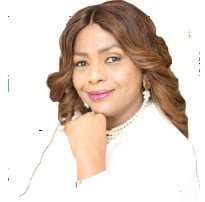[ad_1]
Nigeria’s cancer death ratio of four in every five is one of the worst in the world when compared with the situation in advanced countries where eight out of every 10 cases survive. Experts say early case detections can turn the tide in developing countries, writes APPOLONIA ADEYEMI
In recent time, Lagos media has been inundated with the story of a female breast cancer patient, 27-year old Busayo Ekundayo who has been soliciting for over N2 million to continue her treatment which was abandoned due to lack of funds. The breast cancer of Ekundayo has not only reached advanced stages, health officials managing the case at the “The Nigerian Sovereign Investment Authority (NSIA)-Lagos University Teaching Hospital (LUTH) Cancer Centre, said based on the late stage presentation, everything being done at this stage was mere palliative.
Despite NSIA-LUTH Cancer Centre (NLCC) being a specialist screening, diagnosis, treatment and management facility for cancer in Lagos Nigeria, the oncologists lamented that they cannot do much to help the patient. The case of Ekundayo is just one out of the numerous breast cancer cases being presented in Nigeria.
Sadly, many cases come out in the late stages of the cancers including cancers of the colon, cervical cancers, prostate, skin cancers, basal cell cancer, lung cancer, leukemia, lymphoma, among others. The major challenge of managing cancers in the country is the late stage presentations which happens in over 80 per cent of cancer cases, according to medical experts.
This same problem was one of the factors said to be hindering cancer care, during the recent 2023 World Cancer Day commemoration, a cancer awareness initiative which held virtually on February 6, by Breasts Without Spots (BWS), a not-for-profit organisation. BWS went into partnership with various organisations in Africa which shared the same goal with its aims and objectives, to reduce the cancer burden in the continent.
The theme for the year 2023 World Cancer Day was; Closing the Cancer Care Gap: Role of Increased Volume of Oncology Clinical Trials in Low and Medium Income Countries ( LMICs). The partnership included Nigerian Cancer Society (NCS), African Clinical Trial Consortium (ACTC), Emerging Market Quality Trial (eMQT), and Bio Ventures for Global Health ( BVGH), amongst others. The online meeting was held on Monday, to commemorate the day and speakers from all over Africa were connected to share ideas on how to reduce the effect of the public health disease in their countries. According World Health Or ganisation (WHO) statistics, over 100,000 Nigerians are diagnosed with cancer annually, and about 80,000 die from the disease, averaging 240 Nigerians every day or 10 Nigerians every hour, dying from cancer.
Prof. Ifeoma Okoye, a professor of Radiation Medicine and Director, University of Nigeria Nsukka Centre of Excellence for Clinical Trials (UNNCECT), Chair AGCPN Co-Chair ACTC and Member Steering Committee of the Cancer Health Fund who was a speaker at the meeting, spoke on the need for Africans to not only know about the killer disease but to also make the treatment less expensive. “Our target country is Nigeria. We are the giant of Africa and a lot of countries look up to us,” said Okoye.
According to her, 70 per cent of cancer deaths occur in developing countries like Nigeria due to lack of optimum care. Nigeria is currently estimated to have more than 200,000 new cases of cancer patients and about 78,000 cases of deaths from cancer occur annually as at 2022. The recent figures are much higher than that,” she said. Okoye also spoke about the issue of child cancer which was causing a large number of deaths and was killing people in their prime. She said there was a need for early diagnosis across all ages so as to detect the cancer cells and start early treatment. On her part, Shalom Lloyd, co-founder & CSO: Emerging Markets Quality Trials (eMQT) Limited, also spoke about the fear that companies were experiencing about bringing their products and machines to Africa to help battle and combat cancer. “There are a lot of barriers in Africa.
They do not have infrastructure, facilities or even staffs who have experience in doing things according to the guidelines. The work culture is so different that it would take a lot to work with them. “Africa has so many languages and that alone is a barrier. These perceived barriers are scary but we try to break them.
We do have the spirit to try to break it but we are encountering cultural difficulties. Culture is good but do not allow it to become a hindrance to progress. After gathering all the information about Africa, we decided not just to go to Africa but to do it step by step, to address the fears that investors have so that Africa will become more attractive. Lloyd said, “We started something called Assessment for Overseas tools where they gather information and experience on the site on how things are done.
They have patients, appropriate staff. We have done assessments in Ghana, Zimbabwe and other parts. “We are aiming for a long term journey. We understand the fear that pharmaceutical companies have and we have mapped out how to handle it. We want to focus on building a strong African sector and we want different companies to come together and do it. Our sites show us videos and we send them to the companies we want to work with. We are helping them to understand Africa and how to work with Africa to reduce the number of cancer deaths.” According to Okoye, effective presence of pharmaceutical giants, early case detection and prompt treatment can go a long way to prevent cases of patients such as Ekundayo while reversing needless deaths from cancers in developing countries.
TRY IT TONIGHT!!! —
Abuja Civil Servant reveals (FREE) secret Fruits that Increased his Manh0d size, gives Stronger Erections and ends Premature Erection in 7days…
Related
[ad_2]
Source link



